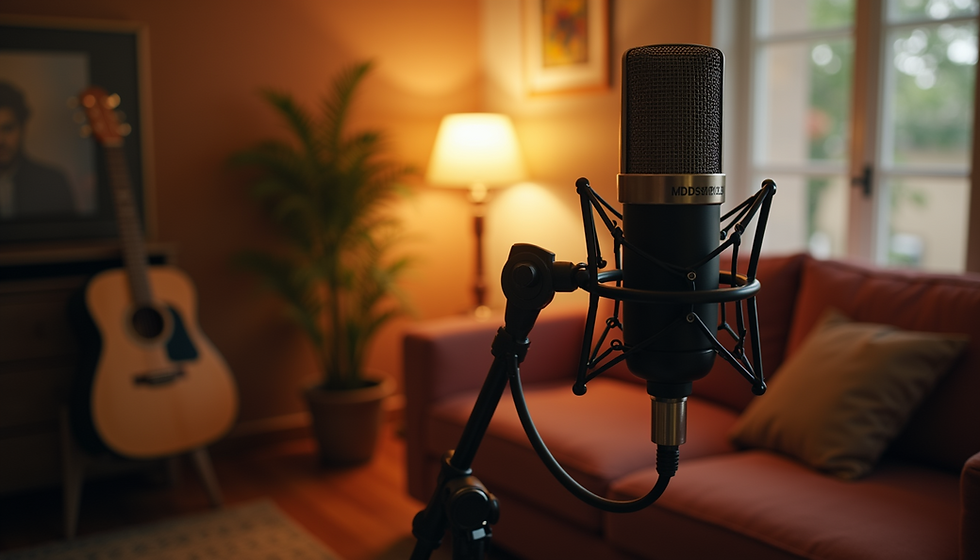Understanding the World of Indie Authors and Their Impact on Literature
- SARAH Rosmond

- Sep 23, 2025
- 3 min read
The literary world has seen a remarkable shift in recent years, thanks to the emergence of indie authors. These brave writers opt to self-publish their work rather than relying on traditional publishing houses. This choice has allowed them to create a distinct niche in the world of literature. But what exactly is an indie author, and how do they influence the literary scene? In this post, we will explore these essential questions and illuminate the active community of indie authors.
What Defines an Indie Author?
An indie author, or independent author, is someone who publishes their work without the support of a traditional publishing house. This independence grants them full creative control over their writing, including the content, cover design, and marketing strategies.
Many indie authors turn to platforms like Amazon Kindle Direct Publishing and Smashwords, allowing them to distribute their books globally. For instance, as of 2023, over 2.5 million books were self-published on Amazon alone, showcasing the extensive reach of indie authors.
These writers are not merely hobbyists; many are dedicated professionals who invest substantial time and resources into their craft. They often spend £500 to £3,000 on editing, cover design, and marketing to ensure their books maintain high standards and attract readers.
The Rise of Self-Publishing
Several factors have fueled the rise of self-publishing. Technological advancements make it easy for authors to turn manuscripts into published works with just a few clicks. Furthermore, the traditional publishing industry has become increasingly competitive, making it tough for new writers to secure publishing deals.
According to data from the Publishing Trends Report, 60% of authors feel that traditional publishing limits their creative freedom, prompting many to self-publish. Additionally, the stigma once attached to self-publishing has diminished significantly, with 49% of readers now open to exploring works by indie authors, recognizing that talent exists outside conventional publishing.
The Impact of Indie Authors on Literature
Indie authors have dramatically enriched the literary landscape by introducing unique perspectives, diverse voices, and innovative storytelling methods. They often explore niche genres or topics—such as queer fiction or multicultural experiences—that mainstream publishers may overlook. This expansion has created a more varied literary ecosystem where all readers can find stories that resonate with their experiences.
Many indie authors actively engage with readers through social media platforms, book clubs, and author events. This direct interaction fosters a sense of community and allows authors to receive immediate feedback, which is invaluable for their growth. For example, indie authors often conduct surveys or polls on platforms like Instagram to gauge reader interests or gather suggestions for future projects.

Challenges Faced by Indie Authors
Despite the opportunities inherent in indie authorship, there are significant challenges. Many indie authors lack the resources of their traditionally published counterparts. They often juggle multiple roles—from writing to editing to marketing—which can be overwhelming.
In 2022, over 1.5 million new self-published titles hit the market, resulting in crowded competition. Without an effective marketing strategy, it can be hard for indie authors to attract readers. Establishing a strong online presence is crucial, with authors utilizing social media campaigns, email newsletters, and book promotions to boost visibility.
Although these challenges are daunting, many indie authors believe the benefits of self-publishing justify the effort. The freedom to maintain creative control and build meaningful connections with readers often compensates for the obstacles they encounter.
The Future of Indie Publishing
As the publishing industry evolves, the future looks bright for indie authors. The growing popularity of audiobooks and digital formats has opened new doors for indie writers to reach audiences. For instance, over 50% of readers now consume books in audio format, presenting indie authors with various opportunities for engagement.
In addition, self-published works are increasingly accepted by both readers and literary critics, suggesting that indie authors will continue to play a pivotal role in shaping the future of literature. With an increase in writers embracing self-publishing, we can anticipate an even greater variety of stories that reflect our diverse experiences.
Final Thoughts
Indie authors are an essential and dynamic component of the literary community. Their independence fosters creativity and innovation, enriching the reading experience for everyone. As these writers continue to push boundaries and challenge the norms, they are redefining what it means to be a writer today.
Whether you're on the lookout for fresh stories or considering self-publishing your own work, the world of indie authors presents countless opportunities and inspiration. Embrace this journey, and you may discover a new favorite author or even find the courage to share your story with the world.
_edited.jpg)

Comments